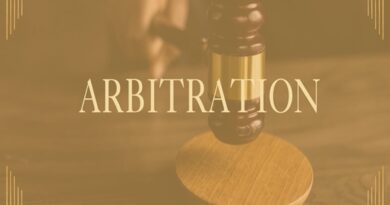Kolhapur Civil Court – Landmark Judgment on Important Principles of Law – Inami land – Suit for declaration that the Church has no right, title and interest in the suit property at Kodoli Tq.Panhala
Kolhapur Civil Court – Landmark Judgment on Important Principles of Law – Inami land – Suit for declaration that the Church has no right, title and interest in the suit property at Kodoli in Dist. Kolhapur
The suit property was owned by Ganpati Ishawara – father of the plaintiff and Smt. Kamal Kashinath Patil. After the death of their parents in 1994, the plaintiff applied for mutation of her name in the revenue record. However, the name of H.G.Harward and subsequently the name of the defendant no.1 was found in the record with the note “claims to be purchased but no document was produced”.
The defendants did not give documents in support of the above noting.
The defendants raised number of objections in the suit of plaintiff including delay of 23 years and suit filed against the trust without permission of the Charity Commissioner.
In the reasons, the learned Judge has analysed the evidence of the parties in salutary form of tabulated statement for ready reference.
The power of attorney holder does not have personal knowledge of the matter and therefore, he can neither depose on his personal knowledge nor can be cross-examined on those facts which are to the personal knowledge of the principal. The term “acts” employed in Order III Rules 1 and 2 of CPC do not include deposing in place and instead of principal. If the holder has done certain acts for the principal, he may depose for the same but not for the acts of principal.
Authority to defend and testify in the suit on behalf of Trust – Rule of delegatus non potest delegare – Power of Attorney – Photocopy is not admissible in evidence as per Section 4© and (d) of the Power of Attorney Act, 1882. He cannot depose for the acts of the Managing Director.
Revenue Records are not the document of title but merely evidence of possession. Long entries of defendant no.1 or of the previous missionary in the revenue extracts would not confer title on it.
Doctrine of “possession follows title” is in favour of the plaintiff.
Section 52 of the Indian Easement Act, 1882.
Section 17(1)(a) and (b) of the Limitation Act shows that when a suit is based on concealed document or the fraud of the defendant, the period of limitation shall begin only after the plaintiff has discovered the same.
Judgment dated 16.12.2023 of the learned 2nd Joint Civil Judge, Senior Division, Kolhapur, in Regular Civil Suit No.192 of 2016 of Smt. Suvarna Kalgonda Patil Vs. Manager, Commission of Ecumenical Church Kolhapur and others.




